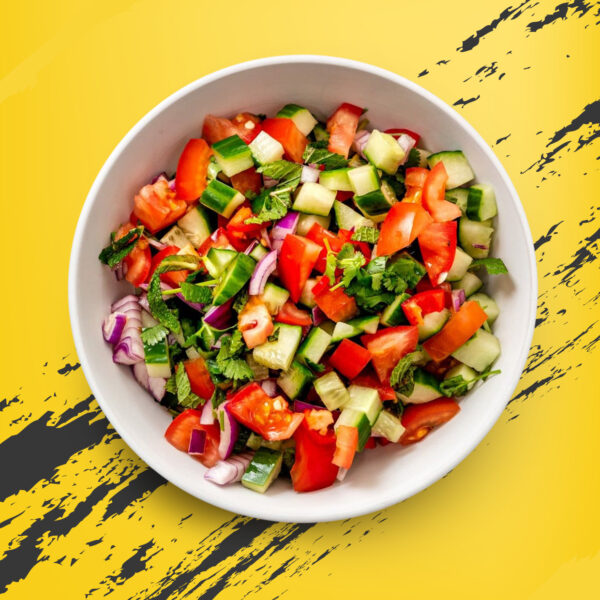Fermented foods have been part of human diets for thousands of years, long before refrigeration or modern preservation methods. From sauerkraut in Germany to kimchi in Korea, and from yogurt in the Middle East to fermented cassava in Africa, the practice of fermentation is both ancient and essential.
But beyond flavor and tradition, fermented foods offer incredible health benefits—particularly for gut health and digestion. Today, as gut-related issues like bloating, constipation, IBS, and food intolerances are on the rise, people are turning back to the wisdom of fermentation. This article explores the power of fermented foods and their deep connection to our digestive system.
What Are Fermented Foods?
Fermented foods are foods that have undergone a process where natural bacteria or yeasts break down the sugars and starches in the food. This process not only preserves the food but also creates beneficial probiotics, enzymes, and increased levels of nutrients.
Common examples of fermented foods include:
- Yogurt
- Kefir
- Kimchi
- Sauerkraut
- Tempeh
- Miso
- Kombucha
- Pickles (naturally fermented)
- Natto
- Fermented cassava (gari, fufu)
- Fermented maize porridge
The Human Gut: Why It Matters
The human gut is more than just a digestion system—it’s a complex ecosystem made up of trillions of microbes. This is known as the gut microbiome. These microbes:
- Break down food
- Synthesize essential vitamins
- Protect against harmful bacteria
- Communicate with the immune system
- Even influence mood and mental health
An imbalanced gut microbiome can lead to digestive issues, skin problems, fatigue, poor immunity, and even depression. That’s why nourishing your gut with probiotic-rich fermented foods is crucial.
How Fermented Foods Help Digestion
1. They Introduce Beneficial Bacteria (Probiotics)
Fermented foods are full of live, active cultures—probiotics—that help repopulate the gut with good bacteria. These bacteria:
- Help break down food more efficiently
- Reduce bloating and gas
- Balance gut pH levels
- Prevent the growth of harmful bacteria
- Improve nutrient absorption
Adding a small portion of fermented foods to every meal can support smoother, healthier digestion.
2. They Support Enzyme Production
Fermentation boosts the production of digestive enzymes that help break down carbohydrates, proteins, and fats. This takes the burden off your digestive organs and makes meals easier to digest.
For example, fermented milk products like kefir and yogurt contain lactase, an enzyme that helps digest lactose. This is especially helpful for people who are lactose intolerant.
3. They Enhance Nutrient Bioavailability
The fermentation process helps unlock and increase the availability of nutrients in food. For instance:
- Fermented vegetables have more vitamin C
- Fermented soy products like tempeh are rich in vitamin B12
- Fermented grains have reduced phytic acid, an anti-nutrient that blocks mineral absorption
Better digestion means your body can access and absorb more vitamins and minerals from what you eat.
Fermented Foods and Gut Disorders
1. Irritable Bowel Syndrome (IBS)
Many people suffering from IBS have found relief through regular consumption of fermented foods. These foods help regulate bowel movements, reduce bloating, and soothe intestinal inflammation. Yogurt and sauerkraut are among the most commonly recommended options.
2. Small Intestinal Bacterial Overgrowth (SIBO)
SIBO is a condition where harmful bacteria overgrow in the small intestine. While some fermented foods might worsen symptoms in certain stages, specific strains of probiotics can help reduce bacterial overgrowth and restore balance.
3. Leaky Gut Syndrome
Fermented foods help heal the gut lining by reducing inflammation and increasing the population of good bacteria. Kombucha and bone broth (though not fermented) are often paired together for gut-repair protocols.
Mental Health and the Gut-Brain Connection
You may have heard the phrase “the gut is the second brain.” That’s because over 90% of serotonin, the happiness hormone, is made in the gut. Poor gut health can contribute to anxiety, depression, and mood swings.
Fermented foods, by restoring gut flora, support the production of neurotransmitters. Many people report feeling better mentally and emotionally after improving their gut health with fermented foods.
Immune Function and Fermented Foods
A strong immune system starts with a healthy gut. Over 70% of the immune system is housed in the gastrointestinal tract. Fermented foods:
- Boost immune cell activity
- Create a protective barrier in the intestines
- Reduce inflammation
- Increase resistance to pathogens
Eating a variety of fermented foods daily can strengthen your natural defenses and help fight off infections.
Best Fermented Foods for Gut Health
1. Kefir
A fermented milk drink rich in probiotics and calcium, kefir contains up to 30 strains of beneficial bacteria and yeasts. It’s more potent than yogurt and ideal for gut repair.
2. Kimchi
A spicy Korean side dish made from fermented cabbage and radishes. Rich in fiber, antioxidants, and probiotics, kimchi helps with bowel regularity and detoxification.
3. Sauerkraut
Made from fermented cabbage, sauerkraut is loaded with lactic acid bacteria that aid digestion and enhance immunity.
4. Yogurt (With Live Cultures)
Choose unsweetened yogurt with “live and active cultures.” It helps in reducing lactose intolerance, improving gut flora, and relieving constipation.
5. Tempeh
A fermented soybean product that is high in plant-based protein and B vitamins, tempeh also supports good digestion.
6. Miso
A fermented soybean paste used in Japanese cuisine. It’s rich in enzymes, probiotics, and minerals.
7. Kombucha
A fermented tea beverage containing acids, probiotics, and antioxidants. It supports liver health and detoxification.
How to Start Eating Fermented Foods
Start slowly if you are new to fermented foods. Some people may experience mild bloating or detox symptoms in the beginning. Here’s how to start:
- Day 1–3: Start with 1–2 tablespoons of fermented vegetables
- Week 1: Add half a cup of yogurt or kefir daily
- Week 2: Include kimchi or miso with one meal
- Always choose unpasteurized, raw, and organic fermented products
Be consistent, and over time, your gut will adapt and thrive.
Fermented Foods vs. Probiotic Supplements
While supplements can be helpful, fermented foods offer a natural, food-based way to get your probiotics. They also come with additional enzymes, vitamins, and fiber that pills lack. Supplements may target specific issues, but whole foods provide diversity, which is key to gut health.
Fermented Foods in Different Cultures
Fermentation is universal. Here’s a glimpse of fermented staples around the world:
- Africa: Fermented cassava (gari, fufu), ogi, sour porridge
- Asia: Kimchi, miso, tempeh, natto
- Europe: Sauerkraut, sourdough bread, kefir
- Middle East: Labneh, yogurt, pickled turnips
- Latin America: Fermented chili sauces, curtido, chicha
These foods are not only traditional but also highly functional for digestive health.
Conclusion: A Simple Step Toward Better Health
Fermented foods are a powerful, natural remedy for improving digestion, restoring gut balance, and strengthening immunity. Incorporating even small amounts of these foods into your daily meals can lead to profound improvements in health, mood, and energy levels.
We encourage everyone to make fermented foods a regular part of their diet. Your gut will thank you.
Beehive Restaurant and Lounge is a vibrant culinary destination in Portland, Oregon, offering a unique blend of authentic African cuisine infused with the sweetness of honey. Whether you’re joining us for a meal or a special celebration, Beehive is your hive of warmth, hospitality, and exceptional culinary delights. Connect with us on social media and join our community to stay updated on our latest offerings and events!








